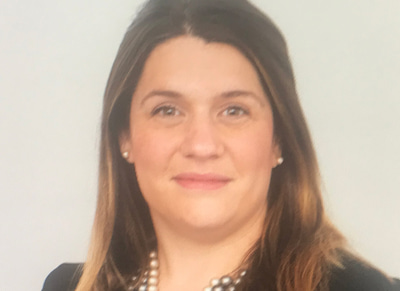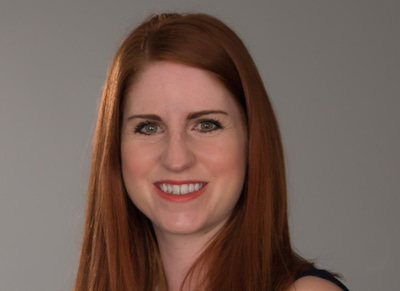- OT
- Professional support
- AOP
- Addressing the challenges of COVID-19 and plans for the future
Addressing the challenges of COVID-19 and plans for the future
A March meeting of the AOP Council raised key areas for the AOP to support practices and optometrists in the coming months

29 March 2021
The council discussed what further support might be needed in the next stages of the pandemic, and also received an update on policy developments from the AOP policy team.
COVID-19 impact
Introducing a discussion on the impact of COVID-19, AOP policy director, Tony Stafford, shared: “Since we last met, we’ve had new lockdown restrictions introduced in each part of the UK, which led to another spike in member enquiries. The legal and regulatory teams are still very much at 2020 levels of activity dealing with COVID-19 queries.”
He continued: “More positively, we’ve seen action around supporting members in being able to access the vaccines and new member resources, including an updated Infection Prevention and Control Certificate video and CET.”
A key concern for Council was the impact of the pandemic on pre-registration placements. Mr Stafford explained that the AOP had provided feedback for cross-sector work addressing the issue, including highlighting to large employers about the “massive stress” caused by employers’ slow confirmation of placements for students due to graduate.
With this year marking the last year of the current CET cycle, Councillors highlighted concerns from members about achieving interactive points. Dr Ian Beasley, AOP head of education and OT clinical editor, explained that more than 60 sessions have been scheduled so far for the year ahead, with 90% of these offering interactive points. Events are released on a quarterly basis, while the AOP’s provision of educational content at the virtual 100% Optical event will also give attendees the chance to obtain their interactive CET points.
Councillors also highlighted the importance of preparing for a potential surge in appointments, as lockdown restrictions ease.
The future of optics
Kathy Jones, AOP policy adviser, introduced a discussion on the future of optics, exploring what has changed over the past year, and how this should be reflected in a new long-term plan for optometry. This builds on work carried out by the AOP before the pandemic.
Councillors described a shift in how patients see the profession. AOP chair, Mike George, suggested the prioritisation of the profession to receive the vaccine and introduction of personal protective equipment (PPE) have helped to “raise our profile with patients that we are frontline healthcare [professionals].”
Changes to appointment times and the patient journey were also noted as positive changes, with some enjoying the needs-led approach to testing. However, there were concerns that appointments could be squeezed going forwards.
Some highlighted the benefits of an increase in collaborative approaches to eye care services and greater discussions around extended services. In some areas, however, councillors felt progress has been slow, highlighting a need for more discussion around infrastructure, in the commissioning of services and communication with secondary care.
Councillors highlighted the financial pressures of the pandemic and raised concerns over the risk that some smaller practices have disappeared as a result of the business damage.
The support provided to optometry by NHS England was described by some councillors as “disappointing,” with AOP councillor Tushar Majithia, explaining: “Many people feel undervalued.”
Many councillors spoke of discussions within the profession around the sustainability of delivering General Ophthalmic Services (GOS), with some practices considering reducing the services they provide, or moving to private services.
“We need realistic fees for services and sustainable sight test fees,” AOP councillor Jane Bell shared. Councillors also noted that technology such as telemedicine “is here to stay” and will need to be appropriately funded going forwards.
Policy update
The AOP policy team delivered updates on policy developments, including the General Optical Council’s (GOC) consultation on ‘Speaking up’ and whistleblowing, and the Professional Standards Authority consultation on its approach to the oversight of healthcare professional regulators. The AOP’s responses can be read online.
The Council also heard an update from Dr Ian Beasley, AOP head of education and OT clinical editor, on the GOC’s new CPD scheme which will be implemented in January 2022, exploring how the AOP can support members through the changes.
Concluding the meeting, which marked his final session as chair, Mr George thanked the Councillors for their work, including remaining for an additional year through the pandemic, and wishing luck to the new Council, who are due to be announced in May.
“One thing that COVID-19 has shown us all is that you don’t know what you have got until it’s gone,” Mr George said. “I didn’t imagine, the last time I chaired a meeting in person, that it would be the last time that I would be holding that gavel. Things can be more fleeting than one would expect.”
AOP experts: legal and communications
What does the AOP’s new substantive hearing and interim orders guidance cover?

Why has the team created this new guidance?
There seems to be quite a lot of feedback that registrants are scared of the GOC. Because of this, we are working to try and demystify the process. The first step to that is education and making clear materials available. This feeds into the legal team’s wider focus on member wellbeing and we’re constantly looking at how we can improve and assist that.
What key message would you have for members?
The AOP legal teams are experts with many years of experience between us, and we can guide members through the GOC investigation process. There is no such thing as a silly question when it comes to legal proceedings.
What can we expect to see from the AOP in the year ahead?

Our activities will span new proactive campaigns, strengthening media relations, creating high-quality patient resources as well as delivering the usual staples of our annual campaign calendar.
How are you adapting communications?
With an incredibly buoyant news agenda, its essential that our campaigns respond directly to COVID-19 or fill a niche for softer news stories. Which is why our Voice of Optometry project will now take the form of short-snap surveys that gauge members’ views on one topic.
This will mean members can share their views quickly and enable us to be agile in the current climate – linking in with key events.
We’ll be using findings as a springboard to design our flagship 2021 campaign – which will include a more in-depth look at the views of the public as well as multi-channel campaigns over the year.
How can AOP members get involved?
We want to find out about the issues that are important to members. There will be an opportunity to get involved through the Voice of Optometry surveys. With over 1000 responses vitally important to our media work, we urge members to take part in these short, quick-fire surveys when they land in their inboxes. More information on this can be found at: www.aop.org.uk/voice


Comments (0)
You must be logged in to join the discussion. Log in